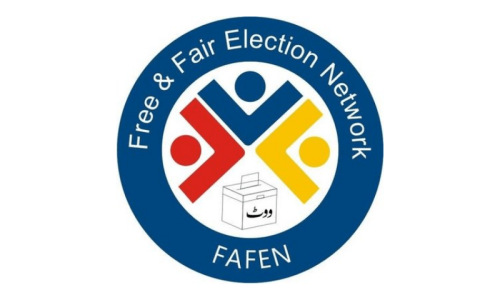SOME time back, a man called Gul Hasan Khan was convicted of murder, and sentenced to die. He pleaded for his life before the Peshawar High Court — the victim’s heirs had pardoned him, he said, and the Penal Code, which made no room for such things, was un-Islamic. It was 1980, and Gen Zia’s Islamisation was in full swing. Peshawar’s judges, who were not Islamic jurists, agreed with Gul Hasan. They claimed that religious scholars were unanimous: the victim’s kin could pardon the killer. This was incorrect: the bench just ignored any scholar with opposing views, including the respected Muhammad Asad, who argued that forgiveness flowed from “the community or its legal organs”, ie the state, and not the victims’ heirs.
But the Supreme Court endorsed the verdict in ‘Federation vs Gul Hasan’, and struck down those parts of the Penal Code that dealt with murder. According to the bench chaired by Justice Afzal Zullah, the code did not provide for qisas (retribution) in cases of qatal-i-amd (deliberate murder). It also did not provide for diyat (blood money) in cases of mistaken or quasi-deliberate murder.
There is much to question about the Gul Hasan decision: it ignored the same scholars the Peshawar High Court ignored; the judges couldn’t even agree on the correct interpretation of the main sources that dealt with qisas and diyat; and it overlooked a massive body of Islamic jurisprudence.
It nonetheless ordered the government to turn the Pakistan Penal Code upside down, and pass a new law. By then it was already 1990, and the government of the day was an interim one. President Ghulam Ishaq Khan had sacked Benazir, but she’d challenged her dismissal in the Supreme Court. Whether or not he was currying favour with the same judges, GIK thought it the best moment to bow to the court’s wishes, and pass the Criminal Law (Second Amendment) Ordinance of 1990.
There must be a clear connection between crime and punishment.
It was a win-win: the president got to keep Benazir out, and the judges got to see their new law pushed in. It was the most radical change to the country’s criminal justice system ever, and it happened without a single debate in parliament.
But the new law was no better than the judgement. The Supreme Court’s unanimous order, flawed as it was, had still made a crucial distinction between murder and deliberate murder: ‘compromise’ was attracted only when the act of murder was unintentional. The ordinance made no such distinction.
Rather than let it lapse, it was bulldozed through parliament by Prime Minister Nawaz Sharif in 1997, in less than 30 minutes. Again, “no discussion or debate took place”, wrote scholar Tahir Wasti in the best book on the subject. Per our parliamentary debates, the minister in charge for law, Zafar Ali Shah, assured the house that the new act could always be amended later (the opposition walked out anyway).
The law overturned a core legal truth: that there must be a clear connection between crime and punishment. Murder became an offence against the victim’s family, instead of an offence against the state.
Unlike states however, family members can be beaten and broken. Qandeel Baloch was murdered by her brother because his ‘honour’ was threatened; he was pardoned by the family. The Punjab police tortured Salahuddin Ayubi to death because he robbed an ATM; they were pardoned by the family. Shahrukh Jatoi shot a boy dead because he felt like it; he was pardoned by the family. Raymond Davis killed two Pakistanis because he was a brain-dead CIA trigger; he was pardoned by the family. In not a single one of these cases did the victim’s families grant mercy from the beginning. Some were attacked, some were coerced, and some committed suicide. Others were driven insane, like Murad Bibi, who saw her nephew massacre her brother, his wife, and their three daughters.
The law also wrecked our jurisprudence: it freed men that strangled their sisters for honour. It immunised the rich. It boosted the homicide rate, while convictions fell through the floor: from 72pc in the Supreme Court in the 1980s, to 33pc in the 1990s, according to Wasti.
There have been a few brave blips along the way: among the first when Justice Ramday refused acquittal in a heart-wrenching child murder case, and then when Justice Tassaduq Hussain Jillani rejected compromise over a gruesome triple homicide in ‘Siddique vs State’.
Those exceptions must now become the rule: the Supreme Court must revisit its decision in the Gul Hasan case and the resulting law, and ensure that deliberate murder be excluded from compromise altogether, even as mitigation. Parliament does not have to wait that long; no judgement prevents it from fixing the law in light of Islamic jurisprudence, and making qatal-i-amd a crime against the state again.
Murder comes with a price tag in Pakistan. For those who buy such a thing, there must be punishment.
The writer is a barrister.
Published in Dawn, October 22nd, 2019












































